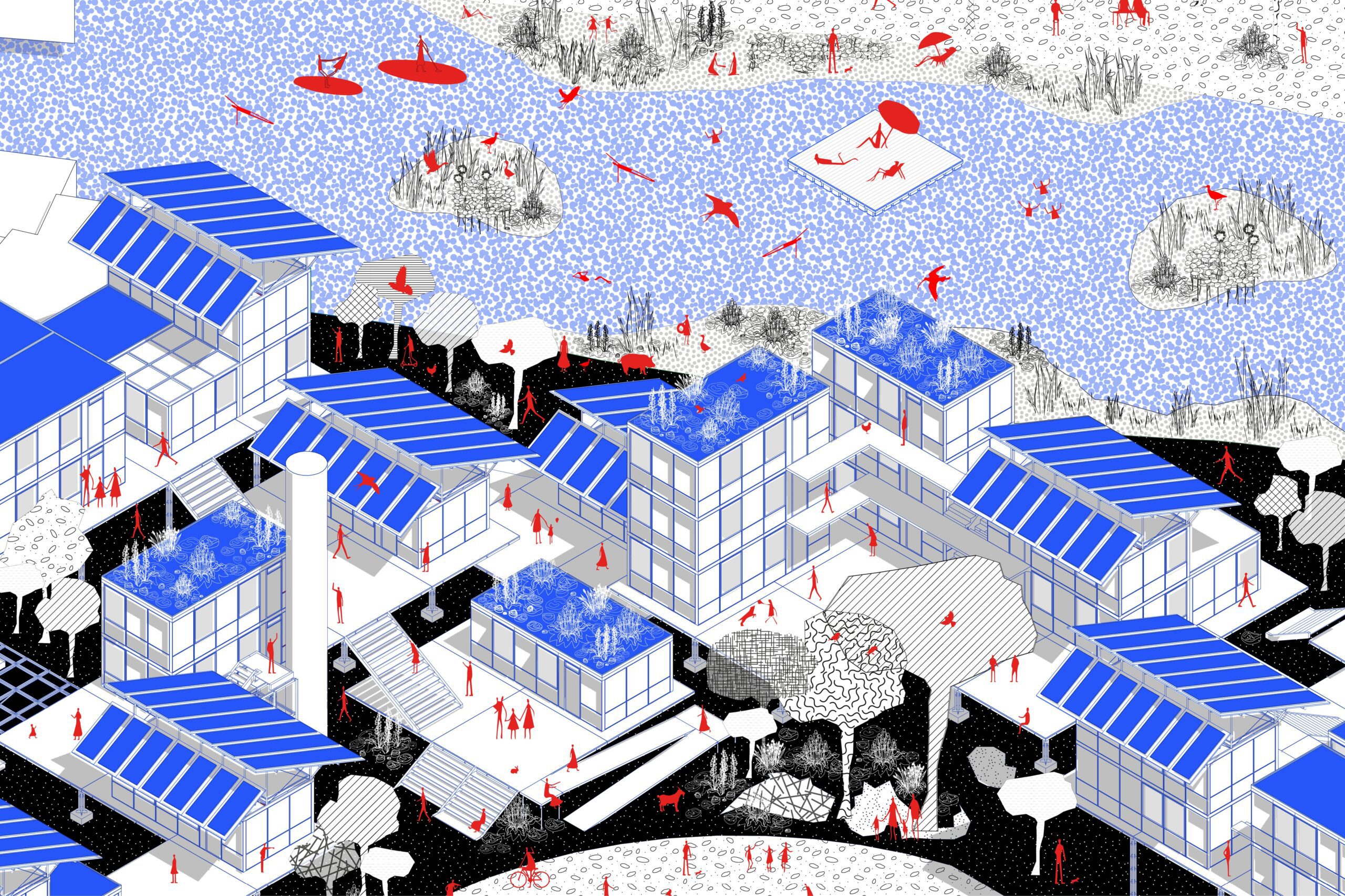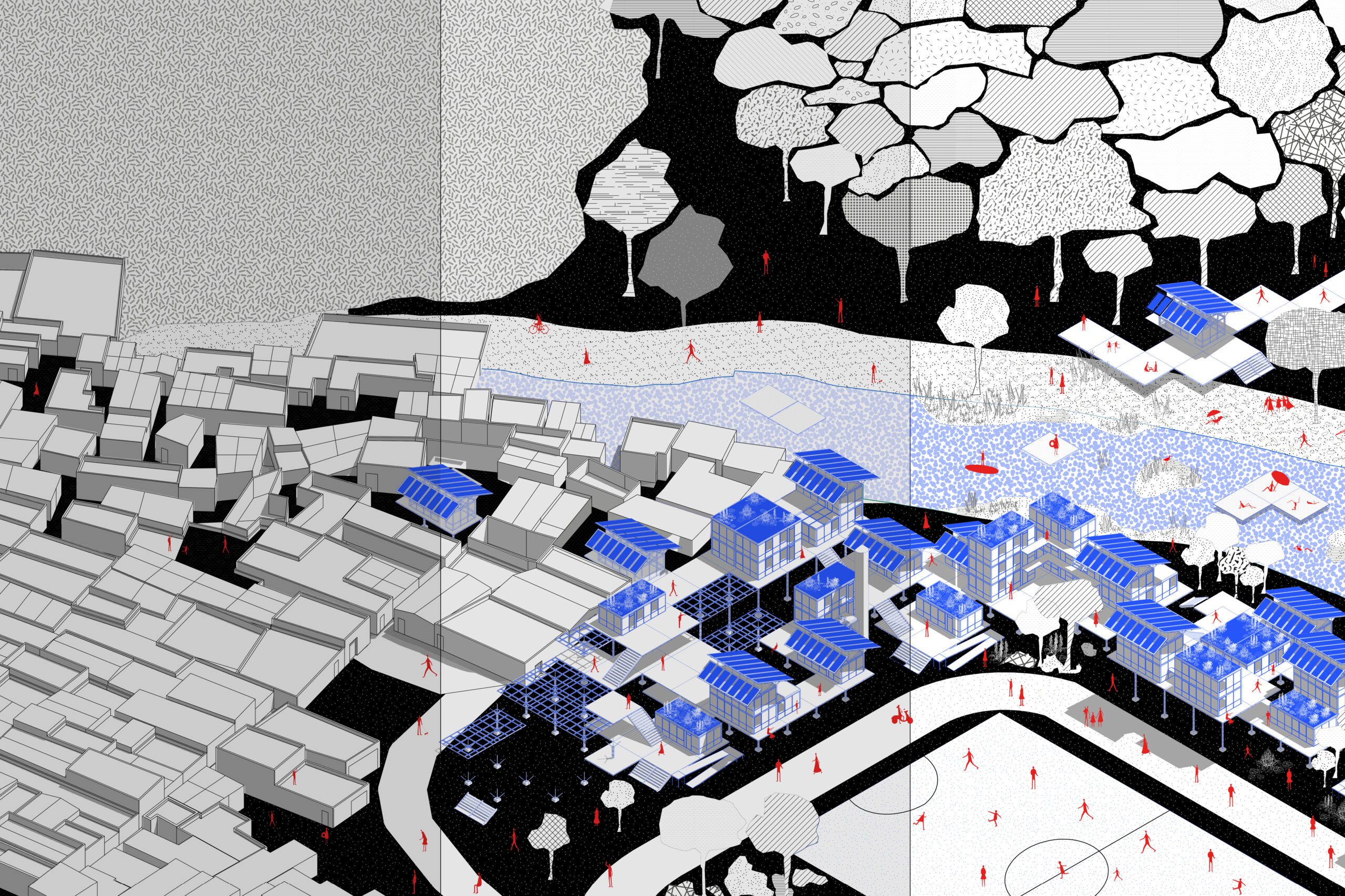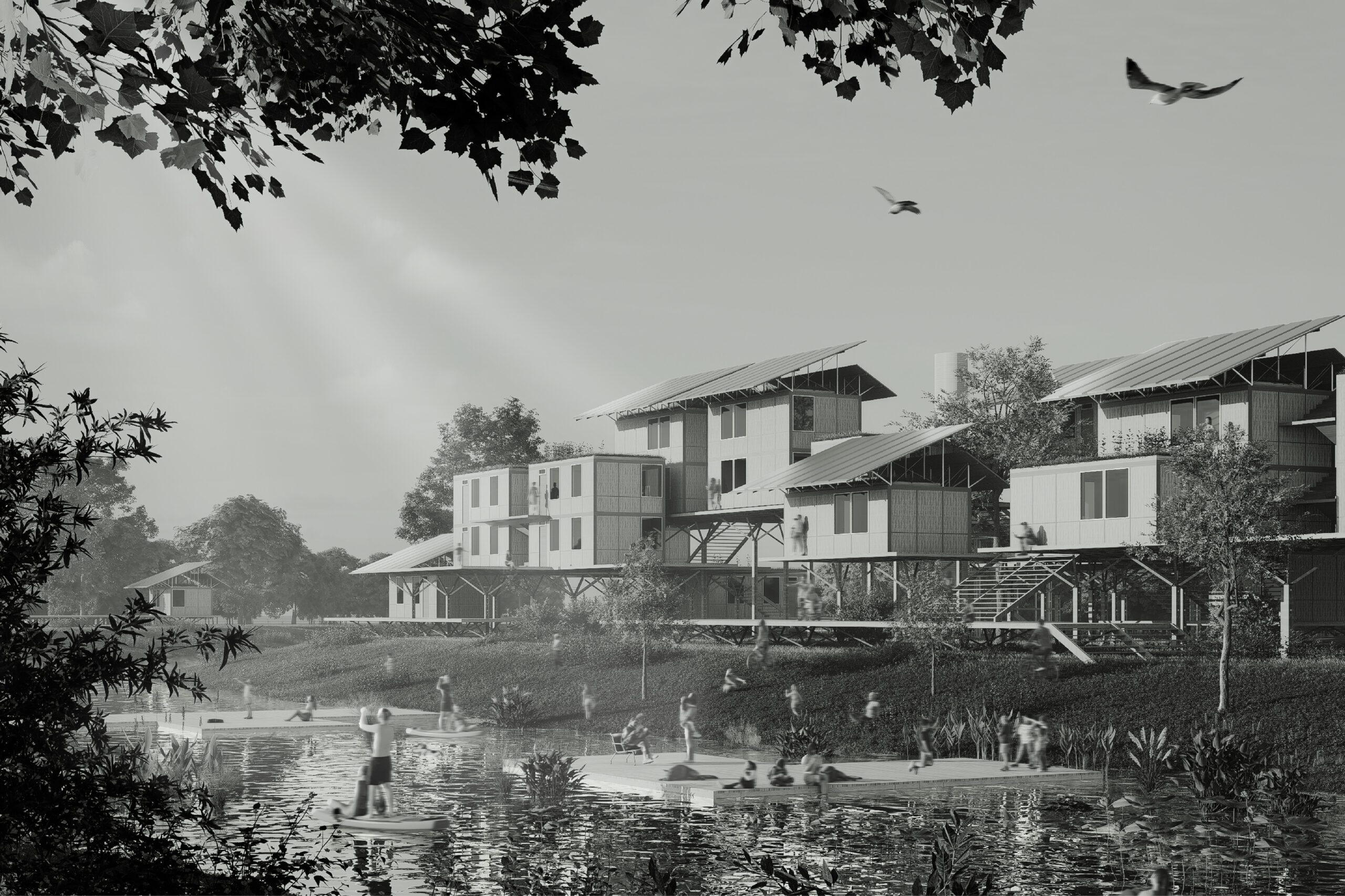Project implementation: Brazil
Project development: Brazil
Students: Aline Saemi Nakamura, Camila Miwa, Livia Naomi Nishijima Yohei, Luisa Caminha de Figueiredo
Developed by four architecture students from different Brazilian states, the project investigates the role of architecture in territories that have faced the most extreme effects of inequality and environmental crisis for decades. These are communities that are invisible, racialized, and pushed to the edges of cities and public policies. Places where the soil gives way and floods, and where water is not a cycle, but a constant threat.
In the East Zone of São Paulo, in the Jardim Lapena neighborhood of the São Miguel Paulista district, this reality materializes. The occupation began in the 1950s and today is home to approximately 12,000 residents. It is within this context that the project "Links: Between Margins, Cycles, and Belonging" fits in, a proposal that seeks to reestablish essential relationships between territory, nature, and community. The project recognizes people and nature, values the processes that keep life moving, and reinforces the sense of belonging of those who already live there.
The proposal is based on a versatile and replicable structure, tailored to local needs. It offers essential infrastructure to address flooding, lack of drainage, and lack of safe spaces, and creates support for community and regenerative relationships. It recognizes the value of existing initiatives but acts in a complementary manner, expanding the resilience and prosperity of these communities.
The strategy utilizes a careful analysis of the territory and the concept of urban acupuncture as a sensitive and immediate action. Underutilized vacant spaces—within a 50-meter radius—were selected for the implementation of the first units, responding to needs identified through dialogue with residents: bathrooms, kitchens, shelter, and security.
More than offering physical protection, the project proposes a new form of presence: firm yet respectful. It affirms the importance of those who already live and resist, offering support so that these lives can be restructured with dignity. By raising the platforms off the ground, it also creates space for nature to return and regenerate, reestablishing more caring relationships between body, territory, and environment.
Because yes, architecture can and should be a tool for social justice. But to do so, we must recognize that, for too long, it has been complicit in processes of exclusion, removal, and silencing. The challenge is not just to design, but to restore connections, give visibility, and structure the permanence of those who, for decades, have been silenced.




